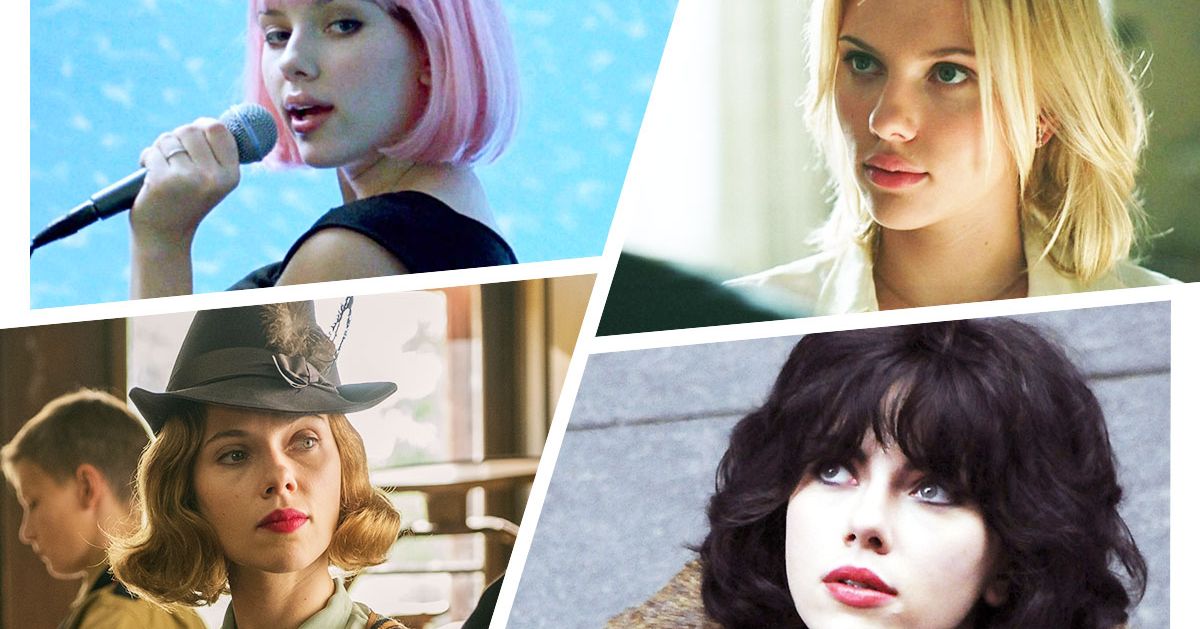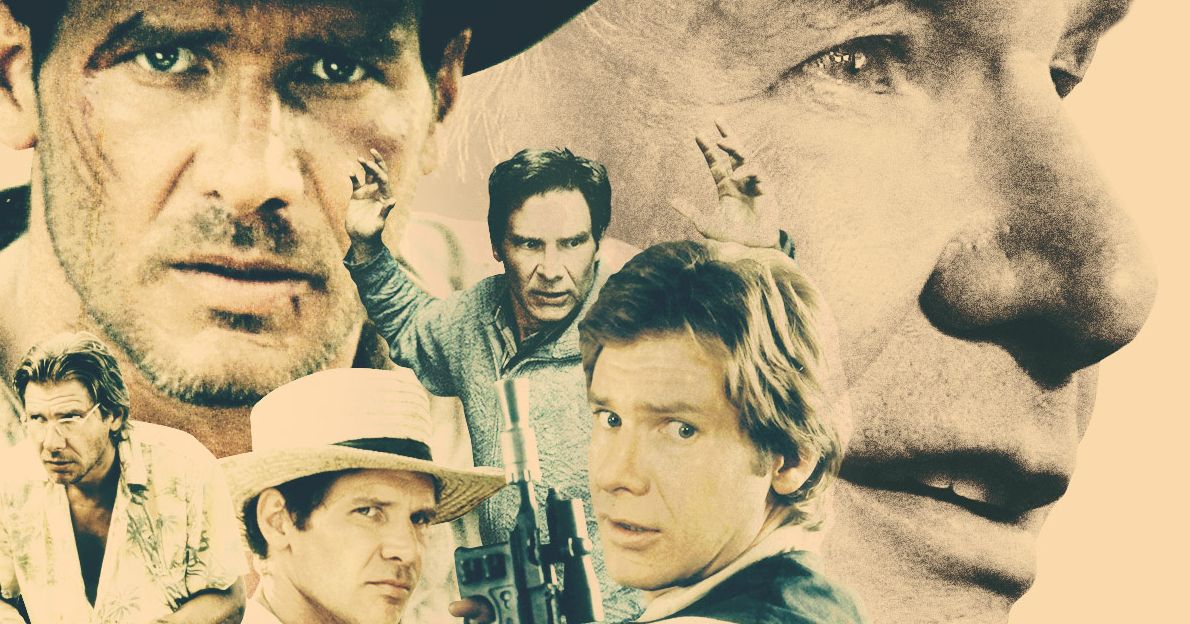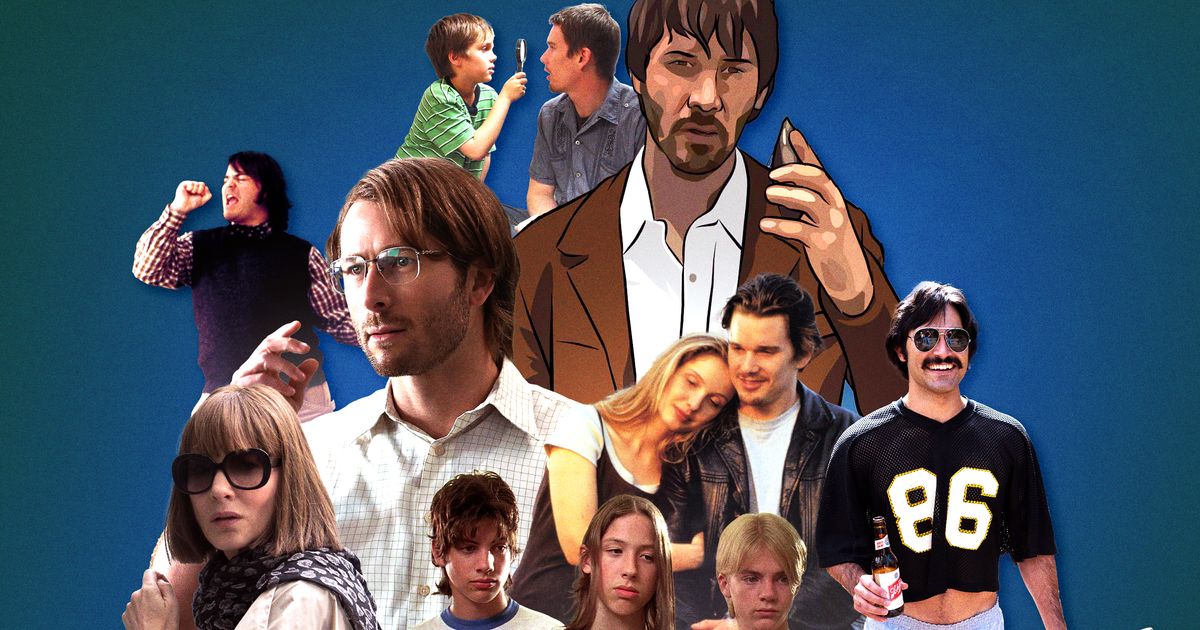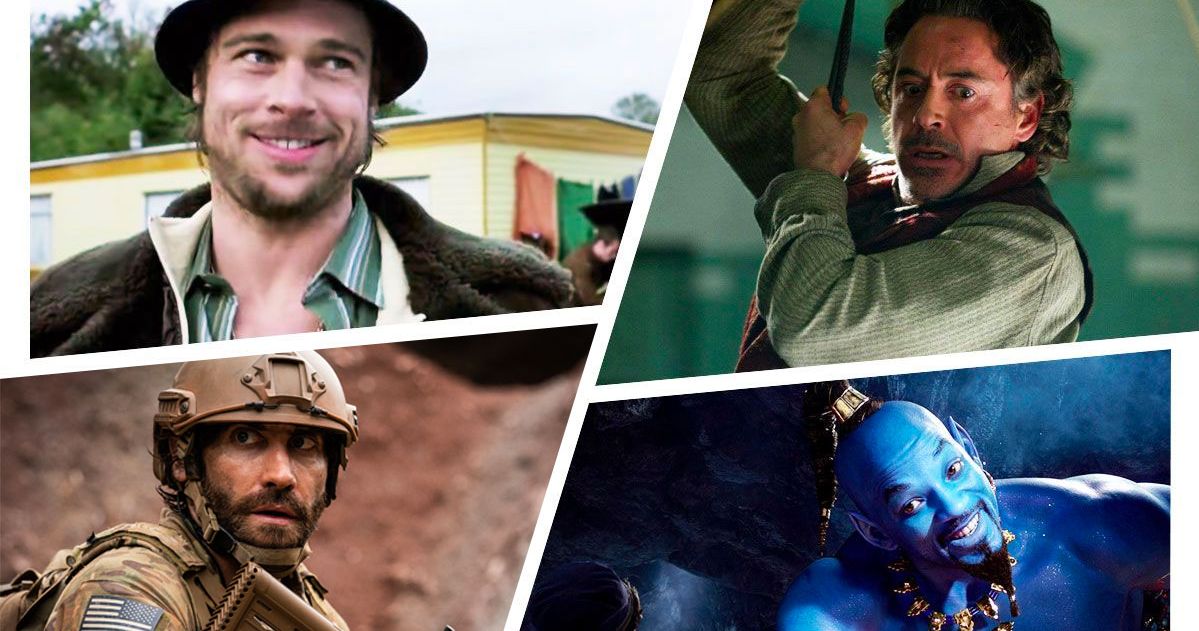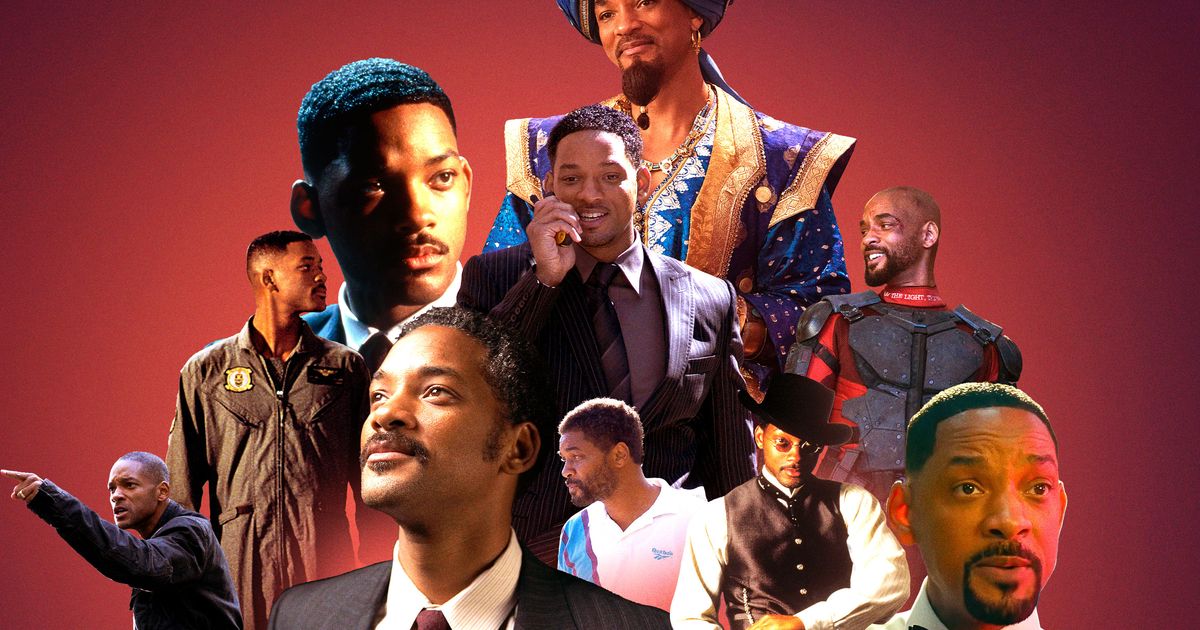Photo: Clockwise from top left: Courtesy of Focus Features, Courtesy of DreamWorks Distribution, Courtesy of A24, Courtesy of Fox Searchlight Pictures
Like many actors who are part of the Marvel Cinematic Universe, it is hard to get a bead on the career of Scarlett Johansson. For years, she seemed to be one of Hollywood’s most promising new talents, a teenager who went from adorable scene-stealer (The Horse Whisperer) to rising indie star (Ghost World, Lost in Translation). She seemed like the Next Big Thing for quite a while, and yet her initial excursions into mainstream studio filmmaking didn’t feel like great fits. (How many people remember she was the star of a Michael Bay movie?) It wasn’t until she became Natasha Romanoff that Johansson found a blockbuster role that she could fully embody. The Avengers movies made her a global superstar, even if one couldn’t help but wonder what films she had to turn down because of the MCU’s demanding schedule.
Not that she hasn’t thrown herself into challenging work over the last several years — anybody who finds time to do Under the Skin is clearly still interested in taking risks — but, fairly or not, there remains a path-not-taken melancholy when thinking about Johansson’s stardom. Because she was so identified initially with pioneering filmmakers like Sofia Coppola and the Coen brothers, seeing (or hearing) her in relatively safe projects like The Jungle Book and Chef felt like a disappointment. Johansson’s brilliant early promise has left us impatient, awaiting increasing greatness with each new role. But that’s our problem, not hers.
Below is a ranking of her best (and worst) performances. We chose to skip a few that were either tiny or inconsequential. And we decided to consider all the Black Widow performances as one. But what’s abundantly clear is that, at the age of 38, Johansson already boasts a sizable treasure trove of standout performances — even in movies where we only hear her talk.
So many big stars failed to make much of an impression in this surprisingly commercially successful ensemble romantic comedy, based on the hit self-help book, that it’s hardly Johansson’s fault that she, too, is pretty mediocre in it. Her story line involves her playing an aspiring singer who has the hots for Bradley Cooper’s married man, eventually setting her sights instead on Kevin Connolly’s more dependable nice guy. The entire message of He’s Just Not That Into You is “Relationships! Am I right??!?” and Johansson is stuck playing the sitcom-dumb version of her fun-loving personality. With Hollywood dreck like this as the alternative, you can understand why she decided to hitch her wagon to Marvel.
After the success of 300 and Sin City (which he co-directed), comics legend Frank Miller tried his hand at making a comic-book adaptation on his own. The Spirit is an unmitigated disaster: disjointed, confusing, overripe, and utterly ridiculous. Johansson, still in her femme fatale phase, is left stranded by Miller, trying to spit out unnecessarily garbled graphic-novel dialogue … while wearing a Nazi uniform, no less.
Another adaptation of Oscar Wilde’s Lady Windermere’s Fan, A Good Woman finds Johansson teaming up with Helen Hunt as Americans left totally adrift by their British director and British cast, trying to do accents and Wilde’s arch dialogue at a pace and scamper that they can’t possibly keep up with. Hunt survives a little bit better because she knew how to protect herself by this point. Johansson has no such good fortune.
Cameron Crowe’s mediocre family dramedy — in which a Twitter account mocking the movie had more creativity and emotional resonance than the actual film it was making sport of — is cloying and desperate and so empty-sugar-sweet that it honestly boggles your mind that this is the guy who created Lloyd Dobler. Johansson has “the love interest” role that she struggles in vain to make interesting. Seriously, just check out the Twitter account instead.
Sort of a dumb mix between The Breakfast Club and that odd Kevin Spacey–as-a-bad-teacher thriller 21, The Perfect Score is about ambitious high-school kids who attempt to break in and steal test results to boost their SAT scores. This isn’t an awful premise for a movie, but director Brian Robbins (Norbit) isn’t up to the challenge, and it feels mostly generic and hacky. It does score points for being the first team-up of Johansson and Chris Evans, who plays the leader of the group. You wonder if they ever looked back at this and just laughed and laughed.
The second best of the two summer 2017 movies about a wacky getaway involving longtime gal-friends — a girls’ trip, if you will — Rough Night represents a rare foray into raunchy, R-rated comedy for Johansson. After this, we wouldn’t blame her for avoiding the genre forever: She plays an uptight political candidate who’s about to get married, traveling with her best friends to Miami for a bachelorette party, except, whoops, they accidentally kill a stripper and have to hide the body. Rough Night casts her as the straight woman against more broadly comedic turns from the likes of Kate McKinnon, Jillian Bell, and Ilana Glazer, but the strained Weekend at Bernie’s premise rarely delivers. We hope she had fun on the set, because there’s little joy for anyone who watches the movie.
Brian De Palma’s attempt to take on James Ellroy and old Los Angeles ’50s noir — a combination that should have totally worked — falls flat, both overcooked and stilted, with no help from the rather dull trio of Johansson, Josh Hartnett, and an uncharacteristically bland Aaron Eckhart. It doesn’t help that Johansson is outshined by Mia Kirshner as the Black Dahlia herself — a performance that, despite its short screen time, has a soul that the rest of the film lacks.
One of her last transition-from-child-roles-to-adult-ones parts, this is Johansson in not-quite-an-ingénue mode, playing a teenager brought to America as a baby who just wants to be a normal kid but slowly realizes what exactly got her here. Johansson is effectively unaware of all that surrounds her, convincingly in a way that all teenagers are. Her slowly dawning realization isn’t exactly as strong but, as the audience learns along the way, this isn’t even necessarily her story anyway.
How in the world can a movie starring Johansson and Ewan McGregor as perfect human clones trying to escape from a facility run by an evil corporation be not just overdone and senseless but also weirdly unsexy? Oh, yeah, that’s right: Michael Bay made this. The first half of The Island is impressively spare and feels like someone other than Bay directed it. The real Bay takes over in the second half, and away the movie goes. What a waste of a duo.
Coming right on the heels of The Devil Wears Prada, this feels like Johansson & Co. trying to recapture that film’s slightly cynical NYC-glam success. The Nanny Diaries keeps trying to sneak its way into an over-the-top satire, but it’s also a little bit too earnest, and Johansson looks oddly unchallenged by the part.
If you were wondering, “Was there ever a time when Scarlett Johansson was billed below David Arquette?” know that yes, there was. This is an homage to old monster movies that’s mostly kitschy (and comfortably PG-13), and the cast does better the more it seems to be in on the joke. Johansson, as the daughter in distress who learns to kill some goddamned spiders, is having fun with this at an impressively young age. Frankly, she shows more of a goofy sense of humor here than we’d see in some of her later straight-up comedies.
For his going-back-to-my-indie-roots character piece, Iron Man director Jon Favreau enlisted some famous friends and MCU buddies for this tale of a popular chef (Favreau) who decides to start over with a humble food truck. Johansson is onboard to play his kindly girlfriend — it’s little more than a cameo — and to gaze adoringly at him. If you remember Chef at all, it’s probably not because of Johansson.
This is probably the best of the Illumination studio animated films, though, if you’ve ever tried to sit through Despicable Me 3, you know that’s hardly a compliment. Other voice-cast members shine a little brighter here — this is the Matthew McConaughey you like — but Johansson is spunky and fun as Ash, the porcupine with the lousy boyfriend who keeps getting in the way of making the music she should be making on her own. Her big musical number works, and while Sing still can’t shake its generic feel, it’s enough of a crowd-pleaser that you’ll go along with it.
This simplistic depiction of Alfred Hitchcock and the making of Psycho is somewhat redeemed by Johansson, who plays Janet Leigh, Hitch’s latest blonde crush. The role is somewhat thankless — her main character trait is that she’s gorgeous — but when we get to the famous shower scene, Johansson really sells Janet’s terror as her director starts flipping out on her. Even if the sequence itself feels very Dime Store Psychology 101, the fear and betrayal on Johansson’s face in that moment communicates a sense of how actresses felt being manipulated by the Master of Suspense.
Period pieces are never quite Johansson’s strong suit: Her look may be timeless, but there’s something about her personality that feels aggressively, often thrillingly modern. The movie, about Henry VIII and the Boleyn sisters, is both stately and over-the-top, a combination that never quite congeals into anything all that exciting. Natalie Portman and Johansson never made another movie together, but they should try it again: There’s a spark and crackle here that could be served to better use.
Any actor would do anything to work with Christopher Nolan, and this sleight-of-hand thriller has dedicated defenders. And while we admire it more than we love it, the truth is that if you love this movie, Scarlett Johansson is almost certainly not the reason why. The film in a way uses her as a pawn and trophy the same way its two combating protagonists do, and she never quite seems fully integrated in the movie the way, say, Rebecca Hall is. She holds up her end. But The Prestige doesn’t do her justice.
Johansson has a grand time playing a gum-snapping, tight T-shirted, I-wanna-real-man Jersey girl in this directorial debut from Joseph Gordon-Levitt. He’s a Jersey Shore–esque Lothario obsessed with Johansson’s character, who always seems just a little bit out of reach. Gordon-Levitt’s ambition might slightly out-span his reach, but he’s earnest and willing to get Johansson to go a little cartoony in a way she might have resisted with a director who wasn’t a fellow actor. By 2013, she didn’t have to do roles like this anymore, which may have been why she enjoyed doing this one.
An earnest, overlong, not-all-that-terrible literary adaptation gets derailed by an unfocused, way overdone lead performance by John Travolta right at the point in his career where you stopped trusting him to headline big literary adaptations like this. Johansson gives a grounded performance that holds your interest and emotion enough to distract you from whatever Travolta is doing. For this, sort of insanely, Johansson was rewarded with a Golden Globe nomination for Best Actress in a Drama. She actually has four Globe nominations … but no Academy Award nods, yet.
Sure to be among this award season’s most divisive films, Jojo Rabbit will at least find consensus in one regard: Most people who see it will agree that Johansson is … completely fine in it. Playing Rosie, the loving mother of a boy (Roman Griffin Davis) who has Hitler as an imaginary friend, she’s more on the periphery of what’s often a risk-taking mixture of comedy and social commentary set amidst a period of great moral darkness. (What her son doesn’t know is that she’s actually trying to protect Jews from the Nazis, which makes Johansson the film’s secret angel — and part of an important plot development during the story’s final stretch.) Johansson hasn’t done many maternal roles, but she handles it with aplomb here — even if she’s playing second banana to an imaginary Hitler.
Johansson’s first pure love story — an old-fashioned boy-meets-girl comedy-drama — was in this Paul Weitz film about a loyal father, Dan (Dennis Quaid), who suffers the humiliation of being assigned a cocky younger man (Topher Grace) as his new boss. Things only get worse for Dan when he learns that his boss is dating his college-age daughter Alex (Johansson), upsetting both his personal and professional spheres. In his review of In Good Company, Roger Ebert praised Johansson — “she creates a zone of her own importance into which men are drawn not so much by lust as by the feeling that she knows something about life that they might be able to learn” — and, indeed, this was part of the actress’ early career when her characters seemed impossibly wise beyond their years. Eventually, Johansson would outgrow that enigmatic precociousness to become a deeper, more interesting actress, but here it works very well, positioning Alex as a young person who loves her dad but is ready to move on with her life — whether or not he’s ready.
All things considered, Johansson is actually pretty decent as a cyborg agent in the future who’s going to learn some disturbing things about her past. This live-action remake of the 1995 animated film, which itself is an adaptation of a manga, is very much in her wheelhouse, allowing her to play a slightly detached protagonist with a soulful center. (Several of her best roles, which will be showing up later on this list, could be described similarly.) The problem with this Ghost in the Shell is, frankly, everything else around the movie — especially the accusations of whitewashing leveled against the action-thriller. The film, which died at the box office, also helped to cement a public impression that the actress really didn’t care about appropriating other people’s experiences. (“I should be allowed to play any person, or any tree, or any animal,” she reportedly said this summer.) Fairly or not, those extra-textual elements weigh down the movie and her performance.
Johansson has a small voice part as the evil python Kaa, and while the role is tiny and solely her voice, it is particularly strong. The part was initially envisioned for a man, but director Jon Favreau said he thought the film was too male and gave it to Johansson, who lends an air of menace that might not have been in the part originally. The Jungle Book is a reminder that Johansson has never played a full-out, full-bore villain. She might be great at it.
Fifteen years after her first collaboration with Joel and Ethan Coen in The Man Who Wasn’t There, Johansson teamed up with them again for this spiky look back at 1950s Hollywood. She plays DeeAnna, a movie queen whose photogenic smile belies her rotten core. Often in her career, Johansson has played the Beautiful Woman, but although her role in Hail, Caesar! is little more than a one-joke part, she invests it with some really enjoyable snideness. She knows she’s playing a self-mocking cliché, and she has a blast with it.
Revisiting this underrated Coen brothers gem, we were shocked how little Johansson is in the picture. That’s because, in our memory, she figured much more prominently as Birdy, a wistful teenager whose love of the piano transfixes our stoic, melancholy protagonist (Billy Bob Thornton). But Johansson’s few scenes leave a mark, proving that, four months after the indie world saw her in Ghost World, she was poised to be a major part of our filmgoing lives for years to come. Birdy is more of a symbol than a character — Thornton’s unrequited need to escape his mundane existence, personified in a pretty girl — but Johansson makes her elusive, and surprising.
The second of her three movies with Woody Allen, this is the one where she actually gets to be the neurotic Woody Allen stand-in that so many male actors have had the blessed opportunity to be over the years. The difference this time is that Allen himself is also in the movie, as a magician who teams with Johansson’s journalist trying to solve the murder of a British ghost (Ian McShane). In Johansson’s other two movies with Allen, she’s the obscure object of desire, but she gets to be part of the Allen patter here, and she’s good at it. The movie is minor Allen, but Johansson is legitimately funny in it.
This was Johansson’s first film with Wes Anderson, and his deadpan style meshes really well with the sardonic side of her personality. You don’t need the actress’s expressions to get what Nutmeg, the wary love interest of Chief (Bryan Cranston), is thinking — the stop-motion animation articulates that well enough, but so does her wry voice, which conveys so much personality. As the rare sign of beauty in Isle of Dogs’ dark, brutal world, Nutmeg is a show dog, but she’s no pushover: Johansson plays her like a hard-boiled noir figure. “Oh, I’m full-grown sweetheart, you don’t have to worry about me,” she tells Chief when they first meet, and after that you never doubt her for an instant.
Before her breakthrough in Ghost World, Johansson started getting attention as Grace, a teen touched by tragedy in Robert Redford’s adaptation of the Nicholas Evans novel. Richard LaGravanese, who worked on the screenplay for The Horse Whisperer, would later say that Johansson, who was 13 when the film came out, “brought a heartache to the part that seemed to come from experience beyond her years.” Indeed, you can see the old-soul energy that the actress possessed even as a youngster — and while the movie is rather sappy, she acquits herself quite well with the story’s inherent sentimentality. But better things were in her future.
Johansson was 11 when she played the Manny of the title, the younger sister of Lo (Aleksa Palladino). The two sisters run from foster home to foster home, but when the older sister gets pregnant, they find a mother figure in an employee at a baby clothes store (Mary Kay Place) who helps them so much that they decide to kidnap her. She ultimately doesn’t mind, and the relationship between the three forms an unlikely familial bond. Johansson is the narrator of the film, and even though she’s the youngest, she seems perhaps the warmest, most mature of the trio, and the one who understands the situation most clearly.
Director Peter Webber said he wanted to cast Johansson specifically because she had such an outgoing, intelligent, “zippy” personality, and to “repress all that.” While we wouldn’t, uh, generally recommend such a strategy, it must be said that it works here: Johansson is terrific as someone who rarely is allowed to speak but is nevertheless clearly bursting with things to say. Girl With a Pearl Earring is as silent as Johansson has ever been in a film, but she’s incredibly expressive. It’s worth revisiting this, now that she’s one of the most famous people in the world.
We were excited to see Black Widow get her own film, because her best moments in all the Marvel films she’s appeared in so far have been as a foil to other characters, from the smart partner to Captain America to the awkward pseudo-love interest to the Hulk to the ultimately fatal friendship with Hawkeye. She always adds something vital to these movies, but she rarely gets to own them herself. It is worth noting that Johansson has become such a skilled physical actress that we totally believe Black Widow can fight alongside all these superheroes despite not actually having any powers herself.
In the first movie she’s filmed since before the pandemic — remember, Black Widow was the famous simultaneous theaters/Disney+ release — Johansson is back in Wes Anderson land, playing Midge Campbell, a massive movie star marooned in Nevada after an alien visits a science camp for children. (Sometimes it’s sort of absurd to say the plot of an Anderson movie out loud.) Campbell is dark, gloomy, and doomed in an old-time glamour movie-star sort of way, something both Anderson and Johansson have fun with and take seriously in the playful but mournful sense that inhabits the whole movie. Johansson gives Midge a cold-eyed sadness but lets us see the life, even the fire, within: It’s a terrific return.
“I was doing just fine until you showed up.” Within minutes of meeting his friend’s fiancée, Nola, the shrewd, social-climbing Chris (Jonathan Rhys Meyers) knows he’s done for. Scarlett Johansson’s first collaboration with Woody Allen found her playing the beautiful and seductive woman who will break your heart — a very Woody Allen creation — but the revelation was just how good she could be in the role. No longer portraying the inexperienced ingénue needing to be protected, Johansson was far more assertive and mature in Match Point than she’d been previously, and her rapport with Rhys Meyers made this the rare Allen film that felt legitimately sexy and dangerous. That proves essential for a movie in which our antihero, Chris, will be driven by lust and ambition to do the terrible things he does — to obtain Nola, he’d stop at nothing.
Match Point was the bigger hit, and Penélope Cruz was the member of the ensemble to go home with the Oscar, but Vicky Cristina Barcelona is Johansson’s best work with Woody Allen. She’s Cristina, who has traveled with her good friend Vicky (Rebecca Hall) for a vacation in Barcelona, but they’ll soon find themselves at odds over the man (Javier Bardem) who wants to sleep with both of them. Unlike the proper and practical Vicky, Cristina lives her life passionately, and Johansson elevates the character beyond clichés, giving us a person who wants to live a bohemian existence but may actually be seeking something far more elusive. Allen’s movies are often populated by characters who don’t know what they want — who are plagued by chronic dissatisfaction — but Johansson found a less quirky, nebbish-y, shtick-y way of bringing such a person to nuanced life.
You know, we’ve actually sorta had a Black Widow movie already — this wonderfully bonkers Luc Besson action-thriller in which Johansson has a blast utilizing the skillset she developed in those MCU films. She plays Lucy, a college student who — for reasons too silly to explain — accidentally absorbs a drug that allows her to utilize all of her brainpower. Suddenly, she’s supersmart! And super good at kicking ass! Lucy is ridiculous, but Johansson is so confident and grounded in the role that you simply accept the stupidity. This is one of those flicks that’s fueled by high-grade movie-star charisma — she takes you along for the ride, and because she seems to be having such a blast, you do, too. Plus, it helps that Johansson can actually portray a smart person, which is harder than you might think in a film this amped-up and pseudo-profound. The action sequences never stop, and neither does the sly wink Johansson shares with the audience.
Technically, Thora Birch is the lead of this Terry Zwigoff adaptation of the Daniel Clowes comic, and the movie ultimately veers in her (and Steve Buscemi’s) direction. But Johansson is undeniably the breakout star. Her infamously dry and sardonic voice fits perfectly with the bored, indifferent, deadpan Rebecca. She is both droll and sarcastic but also oddly hopeful and even eager to grow and mature … even if it takes it farther away from her best friend. Johansson’s Rebecca ends up mostly out of the narrative by the end of Ghost World, and the film suffers for it. We want her to come back.
You probably know the story: Samantha Morton initially played Samantha, the A.I. unit that befriends nerdy Theodore (Joaquin Phoenix), and recorded her voice role, only to be replaced after filming ended with Scarlett Johansson. (“Samantha was with us on set and was amazing,” writer-director Spike Jonze later told Vulture. “It was only in postproduction, when we started editing, that we realized that what the character/movie needed was different from what Samantha and I had created together. So we recast and since then Scarlett has taken over that role.”) One can’t help but wonder how Morton’s performance would have affected Her, but Johansson’s turned out to be one of the warmest and saddest of her career. We all recognize her husky, breathy voice, but as Samantha, she’s remarkably disconnected from her onscreen persona — if anything, she’s more human, as if she completely removed herself and became this other entity that’s initially the perfect girlfriend but, eventually, finds her own soul. Journalists and critics talk about actors “disappearing” into roles; this is the real deal. Much like her character, Johansson transcends the confines of our expectations, becoming someone new.
Most of the accolades for Noah Baumbach’s divorce tale have centered on Adam Driver’s career-best performance as Charlie, a theater director fighting for custody of his son. But part of what’s special about Johansson’s turn is how it sneaks up on you. She’s Nicole, an actress who let her career take a backseat to her soon-to-be-ex-husband’s, and Marriage Story is a look at how she reclaims her identity while trying to be a good mother and a divorcée. There are no bad guys in this movie, and while Baumbach arguably tilts his focus slightly more toward Charlie, both the filmmaker and the actress make sure that we understand what Nicole is going through as she moves back to Los Angeles and starts over. After years as Black Widow, Johansson finally gets to play someone who’s meant to be ordinary — just another person dealing with a painful breakup — and the specificity and humanity she brings to the role are both welcome and revelatory. Driver gets the bigger moments, but the subtlety of Johansson’s performance stays with you — we’re constantly feeling all the things Nicole doesn’t say aloud.
A coming-out party for both its star and director, Lost in Translation was hardly the first film from Johansson or Sofia Coppola, but it’s one that still looms largest on both of their résumés. Coppola’s autobiographical film about a rudderless young woman, Charlotte (Johansson), wasting her life in Tokyo while her photographer husband (Giovanni Ribisi) pursues his career, harnessed the actress’ early appeal as a beautiful, unhappy seeker. Charlotte finds an unlikely friendship in an aging movie star, and while Bill Murray was widely lauded for his performance, it’s important to remember that Lost in Translation is a double act: He was her strongest scene partner to that point, while she helped bring out a tenderness he’d rarely shown onscreen. In Charlotte, Johansson perfected a youthful disillusionment that, once it was achieved, she’d quickly outgrow. More than 15 years later, though, this film remains one of her peaks.
“I thought it would be incredibly challenging to play a character that’s free of judgment, that has no relationship to any emotion I could relate to.” It’s interesting to hear Johansson explain her motivation behind signing up for Jonathan Glazer’s prickly sci-fi drama because her performance is, in its own way, alien to just about everything else she’s ever done. As the extraterrestrial come down to Earth to trick men into her van, she’s marvelously unknowable, which makes the character’s actions more monstrous and enigmatic. Earlier in her career, she was magnetic or sarcastic or the simple object of a man’s affection. In Under the Skin, she sheds all need to connect to an audience, giving us a menacing figure who’s brutally efficient but emotionally vacant. The beauty and tragedy of Under the Skin is that, eventually, that character will come to understand what it is to feel, but Johansson never goes for cheap sentiment. She’s terrifying, and deeply moving.
Grierson & Leitch write about the movies regularly and host a podcast on film. Follow them on Twitter or visit their site.




